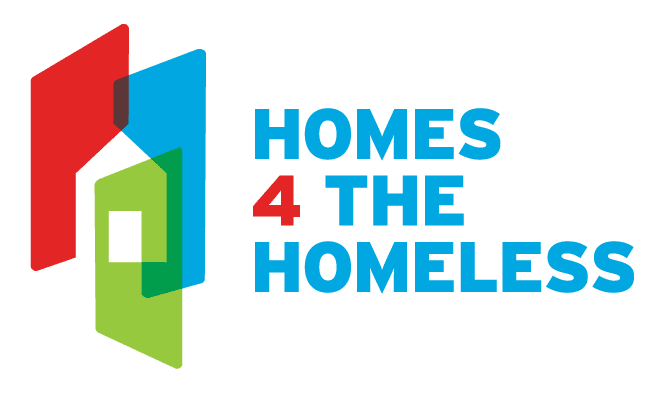Underfunding at HUD and Nonprofits Means More Discrimination Allegations Go Unremedied
The number of fair housing complaints filed across the country continues to rise, a trend that coincides with the Trump administration’s reduction in funding for federal enforcement.
According to the latest fair housing trends report from the National Fair Housing Alliance (NFHA), there were more than 32,000 fair housing complaints filed in 2024, representing an increase of 17% over the last decade. Nearly three-quarters of all complaints were processed by nonprofit fair housing organizations, which have been significantly impacted by Trump’s budget cuts, according to the report.
This is happening at a time when the Trump administration has significantly reduced funding for fair housing enforcement. The president’s latest budget request slashed nearly $60 million from the Department of Housing and Urban Development’s fair housing programs, including zeroing out the Fair Housing Initiatives Program, the National Fair Housing Training Academy, and the Limited English Proficiency Initiative.
In 2025, these programs received roughly $85 million in funding. The 2026 budget requests only $26 million for such programs.
“This report sends a very clear message: America is in the midst of a fair and affordable housing crisis,” Lisa Rice, NFHA President and CEO, told Invisible People in a statement. “On top of the crisis, people are being denied housing opportunities because of immutable characteristics like race, gender, and disability status. And what makes this moment especially alarming is that our civil rights infrastructure itself is under attack across the country.”
What Is Housing Discrimination?
Housing discrimination occurs when someone is denied access to housing because of a protected characteristic such as race, sex, family status, or disability. The Fair Housing Act of 1968 made it federally illegal to discriminate against someone seeking housing based on these characteristics, although several states had laws on their books at the time the bill was passed.
Even though these laws exist, housing discrimination remains rampant and underreported, according to NFHA’s report.
Housing discrimination can take several forms. Some examples include a landlord who refuses to rent to a tenant because of the skin color or national origin; a developer who refuses to create an entrance to a building for people with disabilities; a lender who refuses a mortgage to a qualified buyer because of the buyer’s gender identity; or an insurance company who refuses to insure a property because of who lives there.
“Housing discrimination goes undetected and unreported because it is often difficult to identify or document,” the report explained. “It is also common for victims of discrimination to feel that nothing can or will be done about their civil rights being violated. In some cases, discrimination victims fear their housing provider, landlord, or even neighbors may retaliate—ultimately discouraging them from reporting.”
Who Is Likely to Be Discriminated Against?
According to NFHA’s report, renters of color and people with disabilities are the most likely to face housing discrimination. In 2024, 83% of all housing discrimination cases were filed against rental homes. People with disabilities filed about 55% of all complaints, while people who were discriminated against because of their race filed 16% of claims.
Another 18% of claims reviewed by NFHA were considered “other” infractions, meaning someone was discriminated against because of their source of income, gender identity or expression, marital status, or some other protected class category.
Most of these claims are managed by private fair housing nonprofits, but these entities are under increasing pressure due to the Trump administration’s budget cuts. That could explain why the total number of complaints filed dropped between 2023 and 2024, according to the report, as there were fewer nonprofits to investigate the claims between those years.
“In fact, the disruption and reduction in support and funding for fair housing activities has led to the closing of several fair housing organizations,” the report added. “It has also caused some agencies to reduce services in the communities they serve.”
“Future reports may also reflect a decline in the number of reported complaints–not because discrimination has abated, but rather because nonprofit and government organizations are no longer able to process complaints,” it reads.
The Future of Fair Housing Seems Bleak
The NFHA report also suggests that the future of fair housing might be bleak because of funding challenges for local nonprofits.
Since taking office in January, the Trump administration has sought to force through significant changes to nonprofit funding. For instance, Trump signed an executive order requiring grant applicants to scrap their Diversity, Equity, and Inclusion practices, which could significantly hinder the ability of fair housing organizations to do their work. He has also sought to limit funding for nonprofits that serve vulnerable communities who face housing discrimination, like people who are homeless.
“America’s fair housing infrastructure is being dismantled and defunded in the very moment it’s needed most,” said Nikitra Bailey, NFHA executive vice president. “Congress must ensure HUD’s fair housing programs are fully funded and exercise its oversight authority over HUD to ensure decades of civil rights progress is not reversed through unlawful executive action. Access to fair housing is a basic human right—it’s the law.”
How You Can Help
The pandemic proved that we need to rethink housing in the U.S. It also showed that aid programs work when agencies and service organizations are provided with sufficient funds and clear guidance on spending aid dollars.
Contact your representatives. Tell them you support fair housing protections. We must ensure everyone has access to a safe and affordable home. These protections have proven effective at keeping people housed. This is the first step to ending homelessness once and for all.
